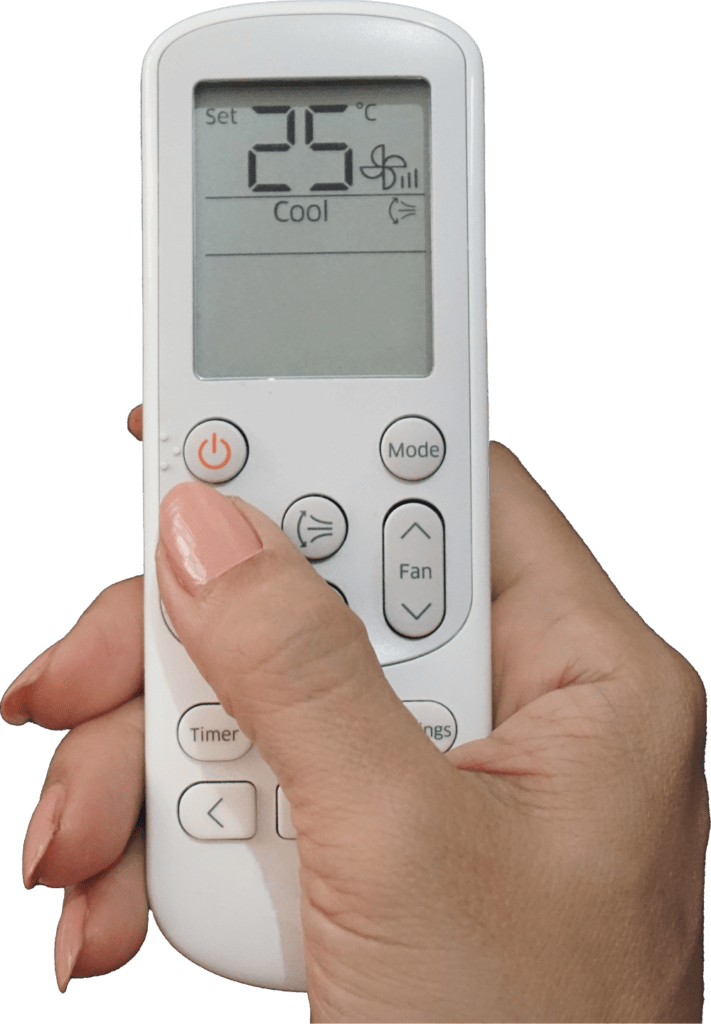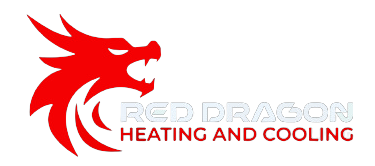- 518.348.9000
- [email protected]
- 117 Van Rd Gloversville,NY 12078
The Ultimate Guide to Boiler Repair and Installation in Fulton and Montgomery Counties: A Red Dragon Heating and Cooling Special
For many homeowners in the historic communities of Gloversville, Johnstown, Broadalbin, Mayfield, Fonda, Amsterdam, and Northville, a boiler is the heart of their home’s heating system. Boilers provide a comfortable and consistent heat that is hard to beat, and they are known for their durability and longevity. However, like any other mechanical system, boilers can break down and will eventually need to be replaced. At Red Dragon Heating and Cooling, we are the leading experts in boiler repair and installation in Fulton and Montgomery Counties, and we’ve created this comprehensive guide to help you understand the ins and outs of this classic heating technology.
What is a Boiler and How Does it Work?
A boiler is a heating system that uses hot water or steam to heat your home. The boiler heats water to a high temperature, and then the hot water or steam is circulated through a series of pipes to radiators, baseboard heaters, or radiant flooring systems throughout your home. As the hot water or steam cools, it releases its heat into the room, and then it is returned to the boiler to be reheated.
There are two main types of boilers:
- Hot Water Boilers: This is the most common type of boiler. It heats water to a temperature of 180-200 degrees Fahrenheit, and then the hot water is circulated through the heating system.
- Steam Boilers: This type of boiler heats water to a temperature of 212 degrees Fahrenheit, at which point it turns to steam. The steam is then circulated through the heating system.
Boilers can be fueled by natural gas, propane, or oil.
The Benefits of a Boiler
Boilers offer a number of benefits over other types of heating systems:
- Comfortable and Consistent Heat: Boilers provide a radiant heat that is very comfortable and consistent. There are no drafts or hot and cold spots, just a gentle and even warmth.
- Quiet Operation: Boilers are very quiet, so you won’t even know they’re running.
- Durability and Longevity: Boilers are known for their durability and longevity. A well-maintained boiler can last for 20-30 years or more.
- Improved Indoor Air Quality: Boilers do not use forced air to distribute heat, so they do not circulate dust, allergens, and other pollutants throughout your home.
Boiler Repair Services
Even the most durable boiler can break down from time to time. If your boiler is not working properly, it’s important to have it repaired by a qualified professional. At Red Dragon Heating and Cooling, we offer a full range of boiler repair services. Our certified and experienced technicians can quickly diagnose and repair any problem with your boiler, from a minor leak to a major malfunction. We have experience working on all makes and models of boilers, and we are available 24/7 for emergency repairs.
Here are some of the common boiler problems that we can repair:
- No Heat or Hot Water: This is the most common boiler problem. It can be caused by a number of issues, including a faulty thermostat, a pilot light that has gone out, or a problem with the boiler’s internal components.
- Leaking or Dripping: A leaking boiler can be a serious problem. It can cause water damage to your home and can also lead to a loss of pressure in the system.
- Strange Noises: If you hear strange noises, such as banging, whistling, or gurgling, coming from your boiler, it could be a sign of a problem.
- Kettling: Kettling is a loud banging noise that is caused by a buildup of limescale in the boiler’s heat exchanger. This can reduce the efficiency of your boiler and can also lead to damage to the heat exchanger.
- Loss of Pressure: If your boiler is losing pressure, it could be a sign of a leak in the system.
If you’re experiencing any of these problems with your boiler, it’s important to call a professional right away. At Red Dragon Heating and Cooling, we can provide you with the fast and reliable boiler repair services you need to get your heating system back up and running.
Boiler Installation Services
If your boiler is old, inefficient, or beyond repair, it may be time for a new installation. At Red Dragon Heating and Cooling, we offer a full range of boiler installation services. We can help you choose the right boiler for your home and your budget, and we will install it according to the manufacturer’s specifications and local building codes.
Here are some of the factors to consider when choosing a new boiler:
- Fuel Type: The first thing to consider is the type of fuel you will use. Natural gas is the most common and affordable option, but propane and oil are also available.
- Efficiency Rating (AFUE): The efficiency of a boiler is measured by its Annual Fuel Utilization Efficiency (AFUE) rating. The higher the AFUE rating, the more efficient the boiler. Modern boilers have AFUE ratings of up to 98.5%, which can translate to significant savings on your energy bills.
- Size of the Boiler: It’s crucial to choose a boiler that is the right size for your home. A boiler that is too small will struggle to heat your home, while a boiler that is too large will cycle on and off too frequently, which can lead to uneven heating and unnecessary wear and tear on the components. At Red Dragon Heating and Cooling, we will perform a thorough load calculation to determine the right size boiler for your home.
- Type of Boiler: You’ll also need to decide between a hot water boiler and a steam boiler. Hot water boilers are more common and are typically more efficient, but steam boilers can be a good option for some homes.
At Red Dragon Heating and Cooling, we can help you navigate the process of choosing a new boiler. We’ll provide you with a free in-home consultation to discuss your options and will help you to choose a boiler that is the right fit for your home and your budget.
Serving Our Communities: Boiler Repair and Installation Across Fulton and Montgomery Counties
Red Dragon Heating and Cooling is proud to serve the communities of Fulton and Montgomery Counties. We understand the unique needs of each community and are committed to providing the best possible service to our neighbors.
Gloversville and Johnstown: The Heart of Our Service Area
As our primary service areas, Gloversville and Johnstown are at the heart of our business. We are dedicated to providing the residents of these historic cities with the best possible boiler repair and installation services. We have extensive experience working in the old, historic homes that are so common in this area, and we understand the unique challenges they can present. Whether you live in a historic home near the Gloversville Public Library or a newer construction near the Johnson Hall State Historic Site, we can provide you with the boiler services you need to stay warm and comfortable.
Broadalbin: Historic Charm and Modern Comfort
Broadalbin is a community that beautifully blends historic charm with modern comfort. We are proud to provide boiler repair and installation services to the residents of this beautiful town. We have experience working in both historic homes, such as those near the Historic Hotel Broadalbin, and modern constructions. We can help you keep your boiler in top condition, so you can enjoy a warm and comfortable home. After a day of enjoying the Broadalbin Town Park or the Sacandaga Marine Access, you can return to a comfortable home, thanks to our expert boiler services.
Mayfield: Lakeside Living and Comfortable Homes
Mayfield is a community that is defined by its beautiful natural surroundings, from the Great Sacandaga Lake to the Adirondack Park Foothills. The residents of Mayfield need a reliable heating system to keep them comfortable during the cold winter months. We are proud to provide boiler repair and installation services to the residents of Mayfield. We can help you ensure that your boiler is in optimal condition, so you can enjoy a comfortable and energy-efficient home. We also have experience working in the many historic homes in the area, including those near the Mayfield Historical Society.
Fonda: A Rich History and a Bright Future
Fonda is a village with a rich history and a strong sense of community. We are proud to provide boiler repair and installation services to the residents of Fonda. We understand the importance of a well-maintained heating system in the historic homes and buildings that are so common in this area, and we have the experience and expertise to provide professional and effective boiler services. Whether you live in a historic home near the Old Montgomery County Courthouse or a newer construction, we can provide you with the boiler services you need to stay warm and comfortable.
Amsterdam: A Diverse City with Diverse Needs
Amsterdam is a vibrant city with a diverse housing stock, from historic homes near the Amsterdam Castle to modern constructions in the surrounding suburbs. This diversity means that the boiler needs of Amsterdam residents can vary greatly. At Red Dragon Heating and Cooling, we have the experience and expertise to repair and install all types of boilers. We can help you ensure that your boiler is in optimal condition, so you can enjoy a comfortable and energy-efficient home. After a walk along the Mohawk Valley Gateway Overlook or a visit to the Walter Elwood Museum, you can rest assured that you’ll have a comfortable home to return to.
Northville: Gateway to the Adirondacks
Northville is a charming village that serves as the gateway to the Adirondack Park. The residents of Northville are no strangers to cold winters, and they know the importance of a reliable heating system. We are proud to provide boiler repair and installation services to the residents of Northville. We can help you ensure that your boiler is up to the challenge of a Northville winter. Whether you’re an avid hiker of the Northville-Placid Trail or you simply enjoy the beauty of Waterfront Park, you can count on Red Dragon Heating and Cooling to keep your home warm and comfortable.
Conclusion: Your Partner in Home Comfort
A boiler is a reliable and efficient heating system that can provide you with years of comfortable and consistent heat. At Red Dragon Heating and Cooling, we are committed to providing the best possible boiler repair and installation services. We are your partners in home comfort, and we are dedicated to ensuring that your home is always a warm and welcoming retreat. Contact us today to schedule your boiler service and learn more about how we can help you stay warm and comfortable all winter long.
References
Understanding Boiler Efficiency: AFUE Ratings Explained
When shopping for a new boiler, one of the most important factors to consider is the efficiency rating. Boiler efficiency is measured by the Annual Fuel Utilization Efficiency (AFUE) rating, which represents the percentage of fuel that is converted to heat. For example, a boiler with an AFUE rating of 90% converts 90% of the fuel it consumes to heat, while the other 10% is lost through the chimney.
Modern high-efficiency boilers have AFUE ratings of 90% or higher, with some models reaching 98.5% or more. These high-efficiency boilers use advanced technologies such as condensing heat exchangers to extract more heat from the combustion gases, resulting in significant energy savings.
Older boilers, on the other hand, may have AFUE ratings of only 60-70%. If you have an old boiler, upgrading to a high-efficiency model can save you a significant amount of money on your energy bills.
Condensing vs. Non-Condensing Boilers
There are two main types of boilers: condensing and non-condensing.
- Non-Condensing Boilers: These are traditional boilers that vent the combustion gases out through a chimney. They have AFUE ratings of 80-85%.
- Condensing Boilers: These are high-efficiency boilers that extract additional heat from the combustion gases by condensing the water vapor. This allows them to achieve AFUE ratings of 90% or higher. Condensing boilers require a different type of venting system than non-condensing boilers, typically using PVC or stainless steel pipes.
While condensing boilers are more expensive upfront, the long-term energy savings can more than offset the initial investment.
Boiler Sizing: The Importance of Getting it Right
Proper boiler sizing is critical for the performance and efficiency of your heating system. A boiler that is too small will struggle to heat your home, especially on the coldest days of the year. A boiler that is too large, on the other hand, will cycle on and off too frequently, which can lead to reduced efficiency, increased wear and tear, and a shorter lifespan.
At Red Dragon Heating and Cooling, we use industry-standard load calculation methods to determine the exact size boiler your home needs. We take into account factors such as the size of your home, the amount of insulation, the number and size of windows, the climate in your area, and the type of heating distribution system you have.
Common Boiler Problems and How to Prevent Them
While boilers are generally very reliable, they can occasionally experience problems. Here are some of the most common boiler problems and how you can prevent them:
- Kettling: This is a loud banging noise that is caused by a buildup of limescale in the boiler’s heat exchanger. Kettling can reduce the efficiency of your boiler and can also lead to damage to the heat exchanger. You can prevent kettling by having your boiler professionally cleaned and maintained regularly.
- Leaking or Dripping: A leaking boiler can be caused by a variety of issues, including a faulty pressure relief valve, a cracked heat exchanger, or corroded pipes. If you notice any leaks, it’s important to call a professional right away.
- No Heat or Hot Water: This is the most common boiler problem. It can be caused by a faulty thermostat, a pilot light that has gone out, a problem with the boiler’s internal components, or a lack of fuel. Check your thermostat and pilot light first, and if the problem persists, call a professional.
- Loss of Pressure: If your boiler is losing pressure, it could be a sign of a leak in the system. You may be able to temporarily restore pressure by using the filling loop, but it’s important to have the leak repaired by a professional.
Boiler Maintenance: Protecting Your Investment
Regular maintenance is essential to keep your boiler running efficiently and reliably. At Red Dragon Heating and Cooling, we offer comprehensive boiler maintenance plans that include annual inspections, cleaning, and tune-ups.
During a boiler maintenance visit, our technicians will:
- Inspect the heat exchanger for cracks or damage
- Check the burner and clean it if necessary
- Inspect the flue pipe and chimney
- Test the pressure relief valve
- Check the circulator pump
- Inspect all electrical connections
- Test all safety controls
- Check the water level and pressure
- And much more
By investing in regular boiler maintenance, you can prevent costly breakdowns, extend the life of your boiler, and ensure that it continues to operate at peak efficiency.
Radiant Floor Heating: The Ultimate in Comfort
If you’re installing a new boiler, you may want to consider radiant floor heating. Radiant floor heating is a heating system that uses hot water to heat your floors, which then radiates heat into the room. This provides a very comfortable and even heat that is hard to beat.
Radiant floor heating can be installed in a variety of flooring types, including tile, hardwood, and concrete. It is especially popular in bathrooms, kitchens, and basements.
At Red Dragon Heating and Cooling, we have extensive experience installing radiant floor heating systems. We can help you determine if radiant floor heating is the right choice for your home.
Boiler Controls and Thermostats
Modern boilers can be equipped with advanced controls and thermostats that allow you to precisely control the temperature of your home and to maximize energy efficiency. Some of the features available include:
- Programmable Thermostats: These allow you to set different temperatures for different times of the day, so you can reduce the temperature when you’re away from home or sleeping.
- Smart Thermostats: These can be controlled from your smartphone or tablet and can learn your heating preferences to maximize comfort and energy savings.
- Outdoor Reset Controls: These adjust the boiler’s water temperature based on the outdoor temperature, which can improve efficiency and comfort.
- Zone Controls: These allow you to control the temperature of different zones in your home independently.
At Red Dragon Heating and Cooling, we can help you choose the right controls and thermostats for your boiler.
The Environmental Benefits of High-Efficiency Boilers
High-efficiency boilers are not only good for your wallet—they’re also good for the environment. By using less fuel to heat your home, high-efficiency boilers produce fewer greenhouse gas emissions and help to reduce your carbon footprint.
If you’re concerned about the environment, upgrading to a high-efficiency boiler is one of the best things you can do to reduce your home’s environmental impact.
Financing Your New Boiler
We understand that a new boiler is a significant investment. That’s why Red Dragon Heating and Cooling offers flexible financing options to help make your new boiler more affordable. We work with a variety of lenders to offer competitive rates and terms, and we can help you find a financing option that fits your budget.
Frequently Asked Questions About Boilers
Q: How long does a boiler last?
A: With proper maintenance, a boiler can last 20-30 years or more.
Q: Are boilers safe?
A: Yes, boilers are very safe when properly installed and maintained. However, it’s important to have your boiler inspected annually by a qualified professional to ensure that it is operating safely.
Q: Can I convert my boiler from oil to natural gas?
A: In many cases, yes. We can help you determine if a conversion is possible and can provide you with a detailed estimate.
Q: What is the difference between a boiler and a furnace?
A: A boiler heats water and circulates it through radiators or radiant flooring to heat your home. A furnace heats air and circulates it through ductwork to heat your home.
Q: How much does a new boiler cost?
A: The cost of a new boiler varies depending on the size, efficiency, and type of boiler. At Red Dragon Heating and Cooling, we offer competitive pricing and will provide you with a detailed estimate.
Trust Red Dragon for All Your Boiler Needs
Whether you need boiler repair, installation, or maintenance, you can trust Red Dragon Heating and Cooling to provide you with professional, reliable service. We are committed to your comfort and satisfaction, and we will do everything we can to ensure that your boiler is operating safely and efficiently. Contact us today to schedule your boiler service and experience the Red Dragon
WHAT WE DO
Expert HVAC Care, Always.


Residential Installations
Trust us to transform your space into a haven of perfect climate control with our expert HVAC installations.

Commercial Installations
Trust us to transform your space into a haven of perfect climate control with our expert HVAC installations.

Thermostat Installations
Trust us to transform your space into a haven of perfect climate control with our expert HVAC installations.

Air Quality Solutions
Trust us to transform your space into a haven of perfect climate control with our expert HVAC installations.
